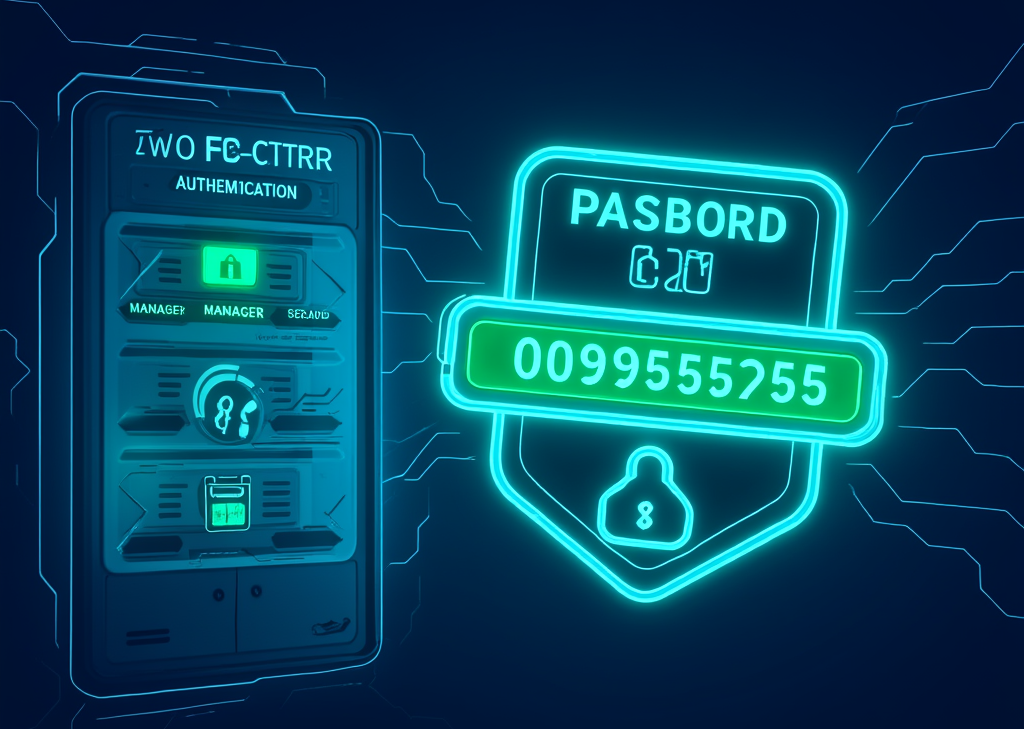How secure is your hosting password? Best practices
Introduction
Every click, every login, every single interaction within the digital realm begins with one crucial aspect: your password. The ever-evolving world of cyber threats means leaving your hosting account vulnerable is no longer an option. Your website, data, and ultimately your reputation hinge on the security of that solitary string of characters. In 2025, the stakes are higher than ever, with cybercriminals adopting more sophisticated strategies to exploit the unwary.
So, how secure is your hosting password? Let's delve into the essentials that can empower you to fortify your defenses and keep your digital assets out of harm’s way.
Why strong hosting passwords matter
When it comes to online security, your password is your first shield. However, many individuals underestimate its power. A weak password is akin to leaving the front door wide open—an invitation for trouble.
Let's paint a picture: you're running a small online business, and your website feels like a sanctuary to you and your customers. But what if someone with ill intent casually stumbles upon your site and uncovers an unsecured admin panel? Their success would depend entirely on the strength of your hosting password. Statistics tell us that nearly 81% of data breaches are due to weak or stolen passwords. In this context, a strong password isn't just a good practice—it's essential.
Consider this—passwords that are short or simple, like “123456” or “password,” are no match for today’s hacking tools. Hackers can crack these in mere seconds. Conversely, a uniquely crafted passphrase like “HotChocolateSunset@3” can take a formidable amount of time to decipher, putting you in the driver’s seat.
Best practices for hosting password security
Let’s draw a roadmap toward creating a fortress with your password. To begin with, here's a checklist of best practices that serious online users should adopt:
1. Use long, unique passphrases
Experts recommend opting for passphrases shaped by memorable phrases rather than trifling with complex combinations. Think of a phrase you love or a mix of words connected with your brand, making sure it surpasses the recommended minimum length of 12 characters. An example could be “OceanBreeze@Dawn46.” This approach bolsters security without sacrificing memorability.
2. Never reuse passwords
Imagine juggling multiple accounts and recycling your passwords like a last-season outfit. While it seems practical, it’s an open invitation for attackers. Once they compromise one password, the floodgates will open to all your accounts. The solution? Every account deserves its unique key, minimizing the chances of a data breach exponentially.
3. Change default passwords immediately
When you set up services or software, you’re usually met with a standard username and password pair. Hackers know this too. As soon as you gain access to any new hosting service, change these default credentials. Your first task is to become the gatekeeper of your digital space.
4. Regularly update your passwords
Time waits for no one, including your passwords. Routine changes—every 30 to 60 days for crucial accounts—can keep attackers on their toes and minimize the likelihood of their success. Treat your passwords like fresh ingredients in the fridge: regularly clean out the old and make way for new.
5. Enable Two-Factor Authentication (2FA)
Adding an extra layer of verification with 2FA is about as smart as it gets in today's digital landscape. Imagine logging in and being prompted for a confirmation code sent to your phone. Even if an attacker managed to uncover your password, without that crucial second piece, your account remains impenetrable.
6. Limit access to sensitive hosting resources
Adopting the principle of least privilege is paramount. Do you really need to give everyone full access? Be strategic. The fewer people who have access to sensitive information, the lower the risk of incidents occurring.
Additional security layers beyond passwords
Don’t fall into the trap of thinking strong passwords are the only protection you need. They serve as your first defense, but a resilient strategy encompasses multiple layers of security. Here’s how you can enhance your setup:
1. Install SSL/TLS certificates
SSL certificates create a secure connection between the user and your server, ensuring any data exchanged is unreadable to prying eyes. It’s your digital handshake, establishing trust.
2. Employ web application firewalls (WAF) and DDoS protection
A WAF monitors and filters incoming traffic, acting as a shield against malicious requests. Adding DDoS protection safeguards you from overwhelming attacks designed to take your site offline.
3. Regularly back up hosting data
In the event of ransomware or other attacks, having a reliable backup can be the difference between losing everything and recovering swiftly. Implement an automatic backup routine to keep your data safe.
4. Keep software updated
Every application, plugin, and operating system carries potential vulnerabilities, which cybercriminals exploit. Regular updates help patch these security holes, fortifying your defenses further.
As we weave through the myriad of protective measures, the importance of strong password practices cannot be understated. They set the foundation for securing not just your website, but the trust and safety of your users in a digital world teeming with dangers waiting to unfold. The path toward a fortified online presence is lined with not just passwords, but strategies and collateral measures waiting to be embraced.
FINDDOMAIN.GE (Internet services LLC) is a very interesting and rapidly developing IT company. The main directions are: web development, domain and web hosting. It also offers clients sub-services and outsourcing related to the main services.
BEST OFFERS:
Do you want to create your own company website or create your own online business on the Internet?
– WEB HOSTING
– DOMAIN REGISTRATION
– WEB DEVELOPMENT
– SITE BUILDER



Building a strong password ecosystem
It's imperative to recognize that while strong passwords are crucial, they are but a cog in a larger security wheel. To ensure that your hosting environment remains impenetrable, integrating a holistic approach reinforces every aspect of your online presence.
1. Monitor login attempts
Tracking login attempts helps you identify unauthorized access or brute force attacks. Regularly reviewing access logs can reveal patterns that indicate suspicious activity. Set up alerts that notify you whenever unusual access is detected, thereby allowing swift remedial action before any potential damage is inflicted.
2. Educate and involve your team
If you manage a team or run a business, your employees need to share the responsibility of maintaining security. Conducting training sessions regarding password policies, potential phishing attempts, and best practices can transform your entire team into a proactive defense unit. Empower them with knowledge, encouraging a culture of security.
3. Leverage password managers
Rather than relying on your memory to juggle numerous complex passwords, consider password managers like LastPass, Dashlane, or 1Password. These tools don’t just store your credentials securely; they also generate strong, random passwords for you, ensuring uniqueness and security for every account you own. No more excuses for using “Password123” when you have the power of technology at your fingertips.
Preparing for the unexpected
Even with the best practices in place, the reality remains that data breaches can and do occur. Preparing for incidents before they happen ensures you're equipped to handle crises effectively.
1. Create a response plan
Have a documented incident response plan outlining the steps to take in case of a breach. This should include who to contact, how to communicate with stakeholders and customers, and the process for assessing and mitigating damage. Being proactive in these moments can diminish the fallout significantly.
2. Conduct regular security audits
Engage in routine security audits to assess vulnerabilities. You can either conduct these audits in-house or hire external experts who specialize in cybersecurity. Identify gaps in your current practices, patch them and reinforce your defenses accordingly.
3. Consider insurance options
With cybersecurity incidents on the rise, cyber liability insurance can help mitigate financial losses. This coverage can support your business in the event of a data breach, assisting with recovery efforts. It’s worth evaluating available policies and selecting a comprehensive plan that suits your needs.
Conclusion
As we navigate the intricate landscape of online security, the significance of strong hosting passwords remains clear. A journey powered by informed decisions emerges from recognizing the risks associated with weak passwords, alongside implementing protective measures that work synergistically to protect your digital realm. By fostering a culture of security awareness, leveraging technology, and preparing for the unexpected, you create an unyielding fortress for your online presence.
In the end, it’s about understanding that cybersecurity is a continuous journey. Each step taken today fortifies your defenses for tomorrow’s challenges. Let your commitment to password security reflect in every interaction, ensuring that the trust your users place in you remains unshaken.
Related Videos
For a deeper understanding of hosting password security and best practices, check out these informative videos:
- How to create strong passwords – Password Security
- Password Managers Explained
- Cyber Security Awareness Training
References
[1] NIST guidelines for password security: NIST SP 800-63B
[2] Two-factor authentication best practices: CISA 2FA Recommendations
[3] Importance of regular updates: OWASP Top Ten 2021
[4] Cybersecurity incident response plans: American Red Cross Incident Plan
[5] Understanding SSL/TLS: SSL.com: What is SSL/TLS?
[6] Password managers comparison: PCMag’s Best Password Managers
[7] DDoS protection strategies: Cloudflare’s DDoS Attacks Explained
[8] the principle of least privilege: CSO: Principle of Least Privilege
BEST OFFERS:
Do you want to create your own company website or create your own online business on the Internet?
– WEB HOSTING
– DOMAIN REGISTRATION
– WEB DEVELOPMENT
– SITE BUILDER





![Website Hosting Providers in [Local Area]: What to Choose](https://besthosting.ge/wp-content/uploads/2025/08/website-hosting-providers-in-local-area-what-to-choose.jpg)
![WordPress Website Experts in [Your City]](https://besthosting.ge/wp-content/uploads/2025/08/wordpress-website-experts-in-your-city.jpg)

![Web Development Services in [Local Area] for E-commerce](https://besthosting.ge/wp-content/uploads/2025/08/web-development-services-ecommerce-local-area.jpg)